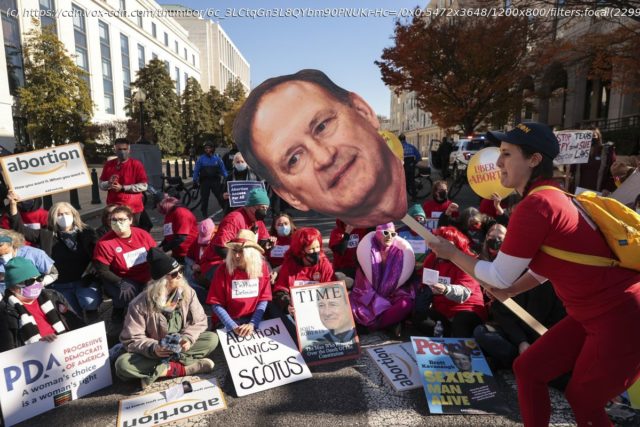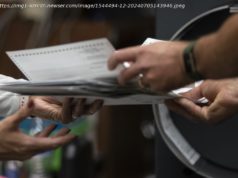The law is very explicit that Biden’s student debt relief program is lawful. The Court’s Republican majority is unlikely to care.
On the last day of February, the Supreme Court will consider the fate of President Joe Biden’s student loan forgiveness plan.
The legal issues are straightforward: A federal law known as the Heroes Act explicitly authorizes the program that Biden announced in the summer of 2022, as the Covid-19 pandemic persisted. Under that program, most borrowers who earned less than $125,000 a year during the pandemic will receive $10,000 in student loan forgiveness. Borrowers who received Pell Grants, a program that serves low-income students, may have up to $20,000 in debt forgiven.
And yet, while this program is clearly authorized by a federal law permitting the secretary of education to “waive or modify” many student loan obligations “as the Secretary deems necessary in connection with a war or other military operation or national emergency,” it is unlikely to survive contact with a Supreme Court dominated by Republican appointees.
The Court will hear two cases challenging this loan forgiveness program, Biden v. Nebraska and Department of Education v. Brown.
The reason why at least one of these lawsuits is likely to end badly for student borrowers is something known as the “major questions doctrine,” a legal doctrine that was largely invented by Republicans on the federal judiciary, and which has no grounding in either constitutional text or in the text of any statute.
In theory, the major questions doctrine provides that, when a federal agency takes an action of “vast ‘economic and political significance,’” it must be authorized to do so by a federal law that very clearly gives the agency the power to do so. Even under this doctrine, however, there is a strong argument that Biden’s student loan forgiveness program is lawful, because the Heroes Act speaks in clear and expansive terms about the education secretary’s power to waive or modify student loan obligations.
But as Justice Elena Kagan wrote in a 2022 dissenting opinion, the major questions doctrine functions as less as a serious inquiry into Congressional intent, and more like a “get-out-of-text-free” card that allows her colleagues to veto federal programs that they wish to invalidate for reasons completely unrelated to what the law actually says.
For this reason, student loan borrowers who were anticipating loan forgiveness should think twice before making any financial decisions that assume this forgiveness will actually happen.
Yes, the program is authorized by a federal statute. But the Court’s GOP-appointed majority has so far invoked the major questions doctrine to strike down at least three Biden administration policies that the Republican Party opposes. And Republicans overwhelmingly oppose this debt forgiveness program.The student loans forgiveness program is explicitly authorized by an Act of Congress
The Heroes Act was enacted in the wake of the 9/11 attack on the World Trade Center, to ensure that student borrowers who are impacted by a “war or other military operation or national emergency” are “not placed in a worse position financially” because of that emergency.
Although it was initially enacted on a temporary basis in 2003, primarily to benefit victims of the 9/11 attack and military servicemembers who may struggle to pay back their loans if they are called to active duty, Congress made the Heroes Act permanent in 2007. Thus, by making the law permanent, Congress determined that the education secretary should have broad and lasting authority to modify or eliminate student loan obligations in future emergencies.
Start
United States
USA — mix The Supreme Court showdown over Biden’s student debt relief program, explained






